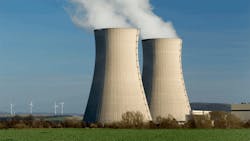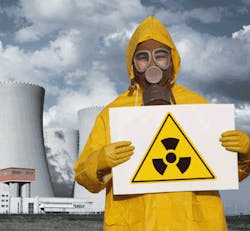Fukushima Workers Experienced Psychological Distress Following Meltdown
Jun Shigemura, M.D., Ph.D., of the National Defense Medical College, Saitama, Japan, and colleagues examined the psychological status of Fukushima workers 2 to 3 months after the disaster for symptoms of general psychological distress, including posttraumatic stress response (PTSR) and feeling nervous, hopeless, restless/fidgety, depressed and worthless in the last 30 days.
The study included all 1,053 full-time workers from the Daiichi plant, which experienced a meltdown, and 707 from the Daini plant, which was damaged but remained intact. Eighty-five percent of the eligible workers participated in the study. Compared with Daini workers, Daiichi workers were more often exposed to disaster-related stressors. The researchers found that general psychological distress and PTSR were common in nuclear plant workers 2 to 3 months after the disaster.
“Daiichi workers had significantly higher rates of psychological distress (47 percent vs. 37 percent) and PTSR (30 percent vs. 19 percent). For both groups, discrimination or slurs were associated with high psychological distress and high PTSR,” the researchers explained. “Other significant associations in both groups included tsunami evacuation and major property loss with psychological distress and pre-existing illness and major property loss with PTSR.”
Researchers also assessed sociodemographic characteristics and disaster-related experiences, including discrimination/slurs because the electric company that managed these plants was criticized for their disaster response and the workers have been targets of discrimination. They found that experiencing such discrimination or slurs was similar for both groups of workers – 14 percent for Daiichi employees and 11 percent for Daini workers.
The research was supported by Health and Labour Sciences Research Grants from the Ministry of Health Labour and Welfare of Japan. The results of two studies appeared in the August 15 issue of The Journal of American Medical Association (JAMA).
About the Author

Laura Walter
Laura Walter was formerly senior editor of EHS Today. She is a subject matter expert in EHS compliance and government issues and has covered a variety of topics relating to occupational safety and health. Her writing has earned awards from the American Society of Business Publication Editors (ASBPE), the Trade Association Business Publications International (TABPI) and APEX Awards for Publication Excellence. Her debut novel, Body of Stars (Dutton) was published in 2021.

